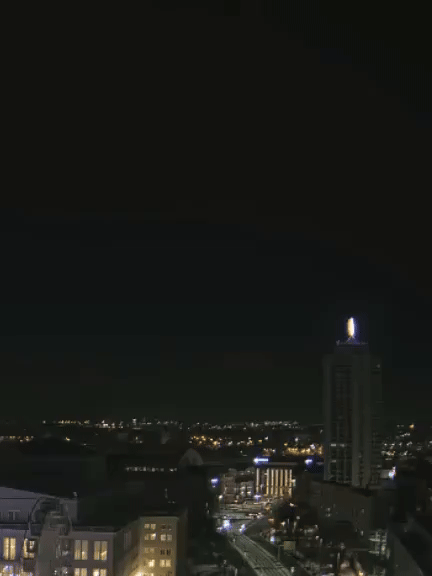A recently discovered asteroid created a stunning display in the sky over Brandenburg, not far from Berlin, as it disintegrated in the Earth’s atmosphere, according to reports from Der Spiegel. The event took place during the night leading into Sunday, prompting a search for any remnants on the ground.
Richard Moissl, a physicist heading the European Space Agency’s (ESA) department for safeguarding the planet from asteroid impacts in Frascati, near Rome, had his night interrupted at precisely 11:36 p.m. The “Meerkat” monitoring system alerted Moissl and his team whenever a celestial body approached Earth with even a one percent probability of impact.
It quickly became apparent that the asteroid, initially named Sar2736, posed no threat to life on Earth. With an estimated diameter of about one meter, the cosmic wanderer was deemed too small for any significant concern.
Upon closer examination of the data, the Minor Planet Center in Cambridge, Massachusetts, officially designated the asteroid as 2024BX1. Preliminary calculations indicated that the celestial object would disintegrate west of Berlin at 0:32 UTC (or 1:32 AM Central European Winter Time). As anticipated, the spectacle unfolded in the capital’s clear night sky at the calculated time. The asteroid entered the atmosphere near the moon at a sharp angle, appearing as a luminous sphere hurtling at several kilometers per second. The event was also captured by webcams in Leipzig and Prague from a considerable distance.



